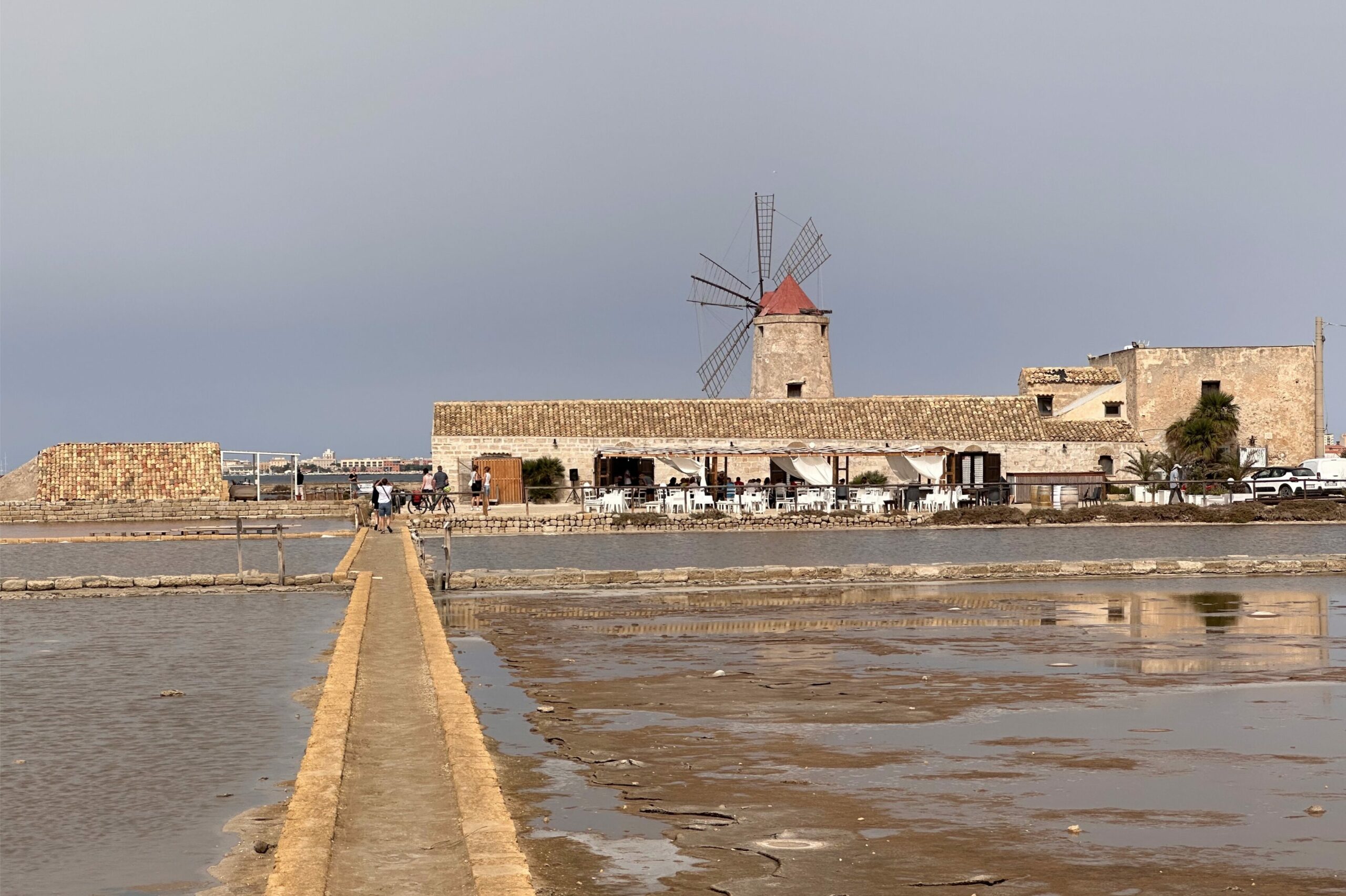The Italian word fiasco (fee-ah-skoh) originally refers to a type of bottle, specifically a round-bottomed glass flask often encased in a straw basket, traditionally used for Italian wines like Chianti. So, if you are at a local osteria somewhere in San Gimignano, you may just find a fiasco di vino (a flask of wine) on your table! Over time, however, fiasco evolved to describe a complete failure or disaster, a meaning that has been adopted into English as well, and that today is, perhaps, even more common than the original.
Etymologically, fiasco comes from the Late Latin term flasco, which in turn came from the Gothic word flasko; indeed, it was the Goths who introduced this new type of bottle, characterized by a round body and long, thin neck, to the Romans, who were already commonly using both object and word between the 4th and the 5th century AD.
The transition from meaning “bottle” to “failure” is believed to have originated from the Italian phrase far fiasco, literally “to make a bottle,” used in theatrical slang since the 18th century to denote a poor performance. Several theories attempt to explain this usage: one suggests that Venetian glassblowers would repurpose flawed glassware into common bottles; thus, a fiasco symbolized a failed attempt at creating something beautiful. Another theory maintains that the phrase referred to actors who, upon forgetting their lines, would “make a bottle”— perhaps a colloquialism implying they had blundered. However, the exact origin remains uncertain.
With this meaning, the term fiasco was incorporated into English in the mid-19th century, with its earliest recorded usage dating back to around 1854.
…And this is why, today, fiasco is commonly used in both Italian and English to describe situations that have gone disastrously wrong.
La festa è stato un fiasco totale.
The party was a total fiasco.
Il progetto si è trasformato in un fiasco.
The project turned into a fiasco.
Il lancio del prodotto è stato un completo fiasco.
The product launch was a complete flop.
La parola italiana fiasco (fee-ah-skoh) si riferisce originariamente a un tipo di bottiglia, in particolare a un fiasco di vetro dal fondo rotondo e spesso racchiuso in un cestino di paglia, tradizionalmente utilizzato per vini italiani come il Chianti. Quindi, se ti trovi in un’osteria locale da qualche parte a San Gimignano, potresti trovare un fiasco di vino sul tuo tavolo! Nel tempo, tuttavia, fiasco si è evoluto per descrivere un fallimento o un disastro completo, significato che è stato adottato anche in inglese e che oggi è, forse, persino più comune dell’originale.
Etimologicamente, fiasco deriva dal termine tardo latino flasco, che a sua volta deriva dalla parola gotica flasko; in effetti, furono i Goti a introdurre questo nuovo tipo di bottiglia, caratterizzata da un corpo rotondo e un collo lungo e sottile, ai Romani, che già usavano comunemente sia l’oggetto che la parola tra il IV e il V secolo d.C.
Si ritiene che il passaggio dal significato di “bottiglia” a “fallimento” abbia avuto origine dall’espressione italiana far fiasco, letteralmente “fare una bottiglia”, usata nello slang teatrale sin dal XVIII secolo per indicare una performance scadente. Diverse teorie tentano di spiegare questo utilizzo: una suggerisce che i soffiatori di vetro veneziani riutilizzassero i vetri difettosi trasformandoli in bottiglie comuni; quindi, un fiasco simboleggiava un tentativo fallito di creare qualcosa di bello. Un’altra teoria sostiene che l’espressione si riferisse agli attori che, dopo aver dimenticato le loro battute, avrebbero “fatto una bottiglia”, forse un’espressione colloquiale per dire che avevano commesso un errore. Tuttavia, l’origine esatta rimane incerta.
Con questo significato, il termine fiasco è stato incorporato in inglese a metà del XIX secolo, con il primo utilizzo noto risalente al 1854 circa.
…Ed è per questo che, oggi, fiasco è comunemente usato sia in italiano che in inglese per descrivere situazioni che sono andate disastrosamente male.
La festa è stato un fiasco totale.
The party was a total fiasco.
Il progetto si è trasformato in un fiasco.
The project turned into a fiasco.
Il lancio del prodotto è stato un completo fiasco.
The product launch was a complete flop.






























